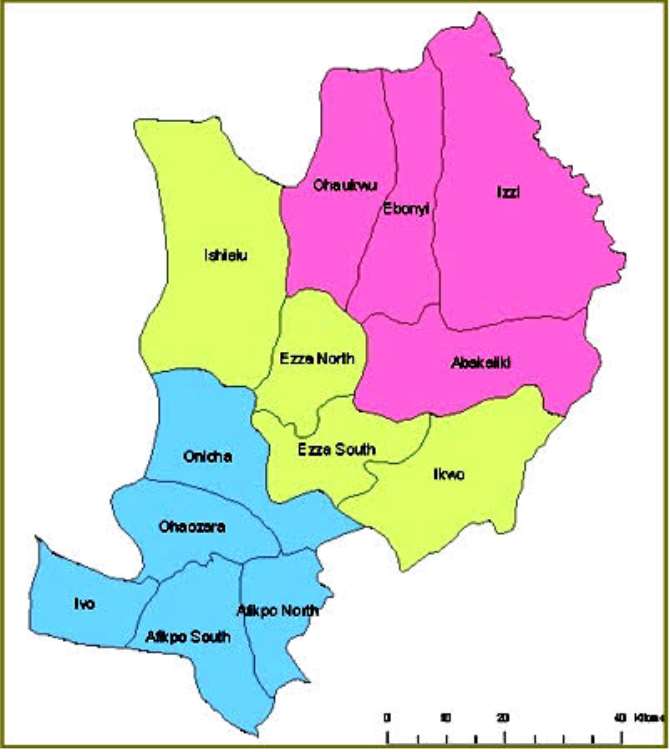Umahi & Igwe's Defection Amounted To Resignation And Loss Of Immunity.

The judgement of the Federal High Court, Abuja, on Tuesday, March 8, 2022 in the suit filed by PDP against Engr. David Umahi, Barr Kelechi Igwe and others qualifies as a landmark judgement. Besides the courage of Justice Inyang Ekwo, in strengthening the hope of the masses in the Nigerian judiciary, the judgement was a bold cerebral attempt at developing the Nigerian case law and curing the thriving mischief of unwarranted political defection or round-tripping which threatened both the sanity of the Nigerian polity and the confidence of the ordinary masses in the Nigerian political system.
Nigeria's electoral system does not permit independent candidacy. Hence, pursuant to section 221 of the 1999 Constitution of the Federal Republic of Nigeria (as amended) and section 84 of the Electoral Act 2022 [which was in the recently repealed Electoral Act 2010], the PDP sponsored Engr. David Umahi, Barr. Kelechi Igwe and the 16 members of Ebonyi State House of Assembly in their respective offices at the 2019 general election. Having obtained their respective mandates under the banner of PDP, the trite and settled position of the constitution and the law as interpreted by the superior courts of record in Nigeria is that the mandates enjoyed by victorious candidates in Nigerian general elections are not their private mandates: Rather, such mandates belong to the respective political parties under which banners the individuals contested the elections. In the succinct judgement of the Supreme Court in Amechi Vs INEC (2008) 5 NWIR (Pt.1080) 227@ 317 – 318 F – B per Oguntade, JSC interpreted Section 221 of the Constitution as follows: “The above provision effectually removes the possibility of independent candidacy in our elections; and places emphasis and responsibility in elections on political parties. Without a political party a candidate cannot contest. The primary method of contest for elective offices is therefore between the parties. If, as provided in Section 221 above, it is only a party that canvasses for votes, it follows that it is a party that wins an election. A good or bad candidate may enhance or diminish the prospect of his party in winning, but at the end of the day, it is the party that wins or loses an election ... In mundane or colloquial terms, we say that a candidate has won an election in a particular constituency but in reality and in consonance with Section 221 of the Constitution it is his party that has won the election.” Following this position of the law, it is clear that the mandates in question in PDP Vs Umahi and others belong to the PDP; not to Umahi and his co-defendants.
The defence of freedom of association which Umahi and his co-political voyagers taunt in respect of their unjustifiable defection to the All Progressives Congress, APC, in November, 2020 cannot suffice because that constitutional right does not permit the conversion of the mandates of a corporate body like PDP and donation of same to APC like Umahi and co-defendants in the suit have tried to do. The derogations provision in section 45(1)b of 1999 CFRN (as amended) is instructive.
I have listened to Engr. David Umahi's pompous reactions to the judgement of the Federal High Court, Abuja; and his vituperative assessment of the Nigerian judiciary. Amidst Umahi's taunts of his immunity under section 308 of the 1999 CFRN (as amended) and attacks on the Nigerian Bench, Umahi told journalists that "There are three ways whereby a governor can vacate his seat; either by death, resignation or impeachment by the House of Assembly".
The position of the law which nobody has attempted to controvert is that going by section 221 of the 1999 CFRN and judicial decisions of the Supreme Court of Nigeria, mandates of elected political office-holders in Nigeria belong to the political parties on which platforms they ran election.
The implication of section 221 of the Nigerian constitution and legal precedents on this issue is that the only constitutional and legal connection or nexus between elected public office-holders, including governors with their deputies and the people's mandates is the political party on which platform they were elected. When a governor embarks on political voyages of discovery abandoning the political party on which the mandate he enjoyed rested, the governor automatically loses his connection with his mandate and cannot infact continue to enjoy the mandate of the political party he/she abandoned while remaining in a different political party. So, defection in this circumstance, in the face of section 221 of the 1999 CFRN and case law amounts, constructively, to resignation!
The immunity clause of the Nigerian Constitution does not prevent anybody from resigning from his office because the constitution forbids forced labour in any ramification!
The moment this resignation takes place by virtue of the defection of a governor from the political party on which platform he won an election to another political party, such governor automatically loses immunity under section 308 of the 1999 CFRN (as amended). This makes such governor vulnerable and qualifies him to be sued in individual capacity in both criminal and civil suits.

